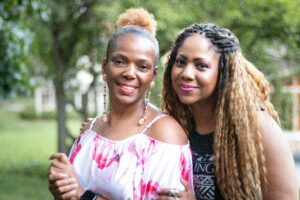If you’re a woman who’s coming off of a relationship with a destructive man, it can be scary to think about dating again, and especially to contemplate taking the leap to start a new relationship. The last guy you were with seemed great early in the going, after all; so now you don’t trust your ability to know whether the next person will turn out the same.
On the other hand, you don’t really feel like being single for the rest of your life. And wouldn’t that be a triumph for the abusive man, if he could make you afraid to ever pursue emotional intimacy again?
The thing is, you’ve learned a lot from what you went through. You may not be able to put what you learned into words yet. You may not even be conscious of what you’ve learned. But it’s there, inside of you. There’s so much that you know now that you didn’t know before. The secret is to bring those new insights to the surface and fully digest them. Then act on what you’ve learned. Nothing from the past is going to help you if you ignore its lessons.
I’ve written extensively other places about the early warning signs of an abusive partner, and I’m not going to review those points today. (But I’ll review them in Part Two of this post, coming soon.)
Instead, I want to focus on a number of issues to reflect on carefully as you wade out into the dating world.
One: Take Your Time
First, don’t start too soon and don’t rush it. I know I wrote above that you don’t want to wait a lifetime, but that doesn’t mean that you need to hurry either. Moving quickly into a new relationship after being abused in the last one is virtually a guarantee (though not quite) that you will get taken advantage of again in the new one.
Why? Because an abusive relationship leaves you in an unsteady place that a new abuser is watching for, and he knows how to use to his advantage. You’re feeling shaken up emotionally. You’re quite likely in a bad place financially. Your friendships and family relationships have suffered some damage (because the abuser tends to specialize in turning people against each other, and because your friends may not be as understanding about abuse as they should be). You’re questioning your own attractiveness and wondering whether anyone will want to be with you (because the abuser was always telling you how fat and ugly and stupid you are in his twisted eyes). And depending on what your abusive partner was like, you may well be physically afraid.
These effects are a setup. They can lead you to latch onto someone rapidly without taking the slow and careful steps that you need to take in order to build a healthy relationship for yourself. They can lure you into making your choices based on a person’s superficial characteristics — charm, kindness, generosity — and you can’t afford to do that right now. You need to look deeply into each possible dating partner; I’ll come back to say more about this below.
So take time to heal from the abuse you endured. Fight, fight, fight against that desperate temptation to jump right into something new. It won’t serve you well.
Here’s something interesting I’ve noticed: Women who wait a good long time — say at least six months and ideally more like a year or two — before starting a new relationship appear to have more success with their new relationship than women who’ve never been abused before! I don’t have a study to back this up, but I’ve observed it over and over. In other words, if you give yourself adequate time to process what you went through, and heal the effects of how the last man treated you, you’ll have a lot of hard-earned life experience working for you as you start dating again.
So take at least several months off from dating, and spend that time writing in your journal, attending a support group, rebuilding your friendships, and taking long walks. Read books and websites about abusive relationships. (I especially recommend It’s My Life Now by Meg Kennedy Dugan and Roger Hock.) Process, digest, reflect, heal. Take pride in spending a period being single; it’s a wise decision. Wait to start dating until you can do so calmly, without desperation. Don’t say yes until you’re ready to also say no.
Two: Break Isolation
I tend to be a bit of a broken record about saying, “Isolation is your enemy, connection is your friend.” And during this post-separation period, that’s as true as ever. If you go into a new relationship needing your partner to be everything to you, meeting all of your needs for companionship, support, fun, and physical affection, you’ll be at risk of closing your eyes to warning signs — because you’ll so badly need it to work out.
Now, women often tell me, “It’s hard to work on friendships right now because I don’t trust anyone anymore. I got burned by the person I trusted most in the world — my partner — plus I got burned by some other people, including ones I was close to, in the midst of being burned by him. How do I know whom to trust?”
This is a huge challenge for many women trying to start anew. But the key jumping off point here is: If you can’t safely have close friendships right now, then you certainly can’t safely have an intimate partner.
The alternative to jumping in is to move slowly and keep your eyes open. I’ll write more in Part Two of this post about ways to tell who is trustworthy and who isn’t in friendships. What I want to focus on now, though, is the importance of looking for a range of different ways to feel more connected. See if you can find a faith community that fits you — you might have to visit quite a few to find one you like. Join a hiking or biking club. Volunteer in your community. Get involved in a cause you care about. Look for adult sports leagues, like soccer or volleyball. Get yourself out there where people are.

You don’t have to move right into being close to anyone, even as a friend. But start rebuilding your connection to the human race. Over time this will decrease your vulnerability to destructive people.
Three: Test Your Dating Partner
The early weeks of a dating relationship tend to go pretty smoothly. Normally this is a happy thing. But the problem is that abusive men rarely show their controlling, disrespectful, or selfish aspects until they’re challenged. So this means that in the first phase of going out with someone, you need to be a little deliberately difficult.
I don’t mean that you need to be rude, or cancel plans at the last minute, or use other insensitive behaviors. But you need to not go along easily with everything. If he, say, wants to eat Chinese, you sometimes need to say that you’re not in the mood and would like to choose a different restaurant. If he says he’s made great plans for the two of you for the evening, you need to say that you don’t actually like to have plans made without your input, and that you want to decide together what the two of you are going to do. (I know that some women like having a guy take charge of everything, but if you’re in that category, pretend for now that you’re not. It’s important.)
The goal here is that you need to see what happens when your needs conflict with his, and when you don’t want to do what he wants to do. You also need to see how he reacts when you make it clear that you don’t want to be controlled.
And this needs to not be a one-shot test, because he may pass one just fine. You need to keep testing every so often. A non-abusive man understands that a relationship is a constant negotiation between two people’s desires and needs. Whereas an abusive man pretends to care about your needs and wishes, but once they get strongly in the way of his, he will usually start to use tactics to get you to do what he wants. This is where you start to see his impatience, or his criticisms of you for wanting what you want, or his self-pity, or his outright disrespect. And that’s crucial information for you to have.

Here’s another way to look at this issue: Beware if you’re telling yourself, “He’s nothing like my last partner — he and I get along great!” The key question isn’t whether you get along well or not; the question is what happens when you aren’t getting along, or don’t want to go along. It’s only at those times that you’ll find out what his issues are.
(I always say that the measure of the health of a relationship isn’t how much you fight, but how your fights go when you do fight.)
TO BE CONTINUED…
Lundy Bancroft is mostly retired from domestic violence prevention work after thirty years in the field, though he still accepts occasional speaking engagements and posts occasional blogs. His “second career” is devoted to teaching and writing about co-counseling, a powerful peer-based approach to healing emotionally and overcoming trauma.
If you would like to learn more about Lundy’s upcoming weekend co-counseling training April 4th-6th (for which Lundy is donating his time), or learn about co-counseling in general, you can click here.




